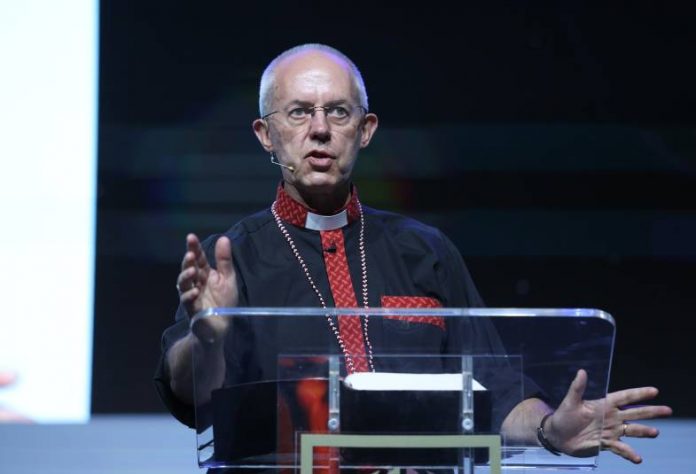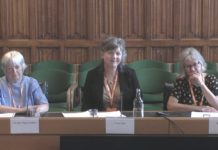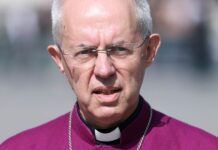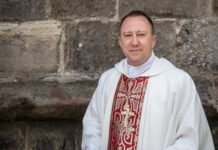Yesterday the Archbishop of Canterbury gave an interview to the Times of Israel in Jerusalem, after meeting at the King David Hotel with Israeli families whose loved ones had been murdered or kidnapped by Hamas terrorists on 7th October.
In the interview, the Archbishop was asked about the explosion at the Anglican-run Al-Ahli Hospital in Gaza on 17th October. In response the Archbishop said: “What I have said publicly to people is don’t assume it was Israel, you have no proof that it’s Israel. Many people have made a clear case it’s not. At the very best, do not start propagating another blood libel.”
Archbishop Justin Welby has made this statement today to clarify these comments:
“I spoke with media in Jerusalem yesterday after a deeply personal and painful meeting with a brave and remarkable group of Israeli relatives of hostages and victims of the heinous terror attacks by Hamas on the 7th October. In that interview I answered a question about the devastating explosion at Ah-Ahli Hospital in Gaza.
“As I have consistently said I am not capable of making judgements about military actions where the facts are contested. Truth is always lost in such emotional and terrible events, and my attention is on those who suffered and are suffering. For this reason, I have been calling for protection and humanitarian access corridors to all places of sanctuary, and making clear that all attacks on civilians in this war are wrong.
“I regret the use of the phrase ‘blood libel’ in that interview. There is so much suffering in this terrible war, and so many competing accounts of countless acts of violence, that two things are essential: that we do not rush to judgement, and that we choose our words carefully. I was attempting to articulate that many Jewish people are deeply conscious of a long history of accusations that trace back to the darkest times of their history. That must be borne in mind when we respond to events in Israel, Gaza and the West Bank. Especially here in Europe, the vast increase of the profound wickedness of antisemitism must be resisted, and that must involve being aware of that history.
“At the same time, the people of Gaza, and all Palestinians, must be able to express their trauma, anger and horror at the profound suffering being endured by innocent people living under Israeli bombardment and siege. There must be space for that trauma and grief to be expressed and heard. We must not silence it, dismiss it or rush to judge it. As those who are not directly involved, we need to hold space for the suffering of all innocent people to be expressed, and to grieve with them.
“It is essential that we concentrate on those who suffer, seek peace and pursue it. I continue to pray that the evil of war is overcome, and that the peoples of the region will find the lasting justice, security and peace they deserve.”



